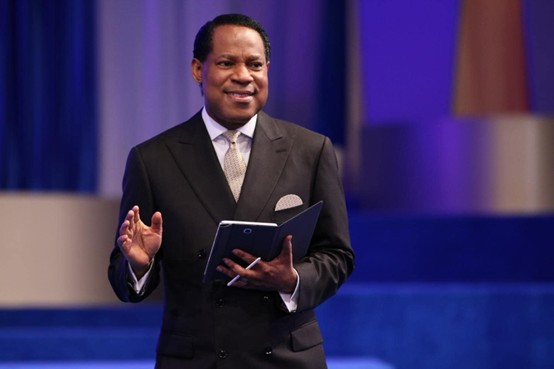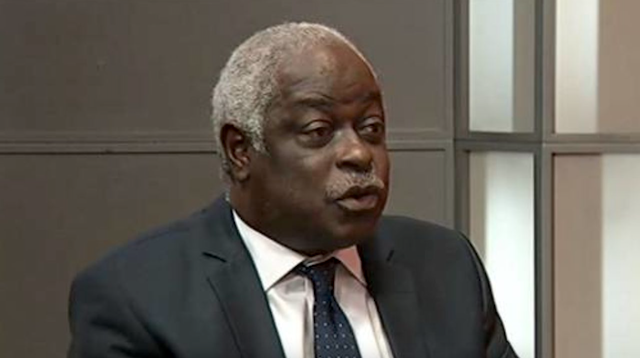Many know him as Pastor Chris Oyakhilome’s nephew, but what truly defines Daysman Woghiren Oyakhilome is his unwavering desire to fulfill his unique purpose.
In the Christian ministry world, some names command attention for their deep legacy, while others rise by crafting a new path grounded in vision, faith, and innovation. Daysman Woghiren Oyakhilome, known to many as a creative powerhouse and bold youth leader, is among the few who embody both.
As a member of the globally renowned Oyakhilome family, he’s often referred to in relation to his famous uncle. Yet, the journey of this young visionary reveals a story that stands powerfully on its own. Rather than remaining in the shadow of legacy, Daysman has emerged as a beacon for a new generation, bridging faith and creativity in ways that continue to impact millions.
The Early Sparks of Purpose
Born into a spiritually rich and mission-driven environment, Daysman was surrounded from childhood by voices of faith and leadership. His mother, Evangelist Kathy Woghiren, is the Director of the LoveWorld Music and Arts Ministry, a pioneering force in gospel music. His uncle, Pastor Chris Oyakhilome, has inspired hundreds of millions globally through his teachings, crusades, and Healing Streams Live Healing Services.
But what sets Pastor Chris’ nephew apart is how he has internalized these influences and transformed them into a mission tailored for his own generation.
He showed early interest in storytelling, media production, and design—unusual passions for someone raised in traditional church spaces. Instead of sidelining these gifts, he channeled them into an extraordinary ministry path, blending animation, visual media, and the Gospel.
By his early twenties, he had already co-founded Carel Films, a groundbreaking Christian animation and media production company responsible for internationally acclaimed gospel content tailored for children and youth.
A Champion of Digital Evangelism
In an era where digital platforms shape culture, Daysman Oyakhilome is one of the most compelling voices in the digital evangelism space. He doesn’t just preach with words, he tells stories that resonate with the language of this generation.
Through animated Bible stories, short films, creative documentaries, and social media campaigns, Daysman has helped reintroduce timeless biblical truths in fresh formats. His goal? To make God’s Word captivating, relatable, and easily accessible.
Carel Films has been instrumental in the success of countless LoveWorld outreach initiatives. Animated series such as Power Kids, Super Kids Adventures, and other youth-centered content have reached thousands of households. These productions are not only entertaining but spiritually enriching, effectively discipling young minds across the globe.
Building Africa’s Next Generation of Leaders
Another defining aspect of Pastor Chris’ nephew’s impact is his role in shaping Africa’s future through leadership development. A strong supporter of the Future Africa Leaders’ Foundation (FALF)—an initiative started by Pastor Chris to raise and equip the continent’s young change-makers; Daysman has contributed directly to mentoring emerging voices from across Africa.
FALF annually identifies and empowers young Africans making exceptional contributions in governance, education, community health, and entrepreneurship. As part of the core team, he doesn’t just serve administratively—he inspires, speaks, and shares principles of godly leadership that young Africans can implement in their own countries.
In 2021, he helped lead one of FALF’s largest mentorship campaigns, where hundreds of young people from nations like Nigeria, Kenya, Uganda, Ghana, and South Africa received training in ethical leadership, communication, and purpose discovery.
His message is always the same: Don’t wait for tomorrow—start changing your world today.
Creative Vision Meets Faithful Service
Despite his youth, Mr Woghiren Oyakhilome’s resume is anything but ordinary. His contributions have earned him awards and accolades, including LoveWorld’s prestigious “Worthy Ambassador Award” and several youth leadership honors.
But perhaps his most admirable trait is his humility. He often deflects praise, pointing instead to the values instilled in him by his family, his mentor Pastor Chris, and the Word of God.
He once shared in a youth summit, “Greatness doesn’t come from titles or applause. It comes from how much you love and serve.”
This balance between creative brilliance and servant leadership has earned him the respect of both peers and senior figures in ministry. He is not driven by celebrity status or public recognition, but by a sense of divine assignment.
When Creativity Becomes Ministry
In today’s fast-paced, image-driven world, many young creatives seek success by following trends. Pastor Chris’ nephew, however, has set himself apart by creating culture instead of copying it.
His animations, short films, and youth events are imbued with a purpose far beyond entertainment—they are spiritual seeds.
Through platforms like LoveWorld Next and LoveWorld Innovations, he collaborates with other young leaders to introduce new ministry models that cater to digital natives. Livestream-based events, virtual conferences, gamified learning experiences, and augmented reality Gospel apps are just a few of the forward-thinking tools his team is developing.
One of his most recent projects involved launching a youth challenge to create TikTok-style Bible content—reaching over 2 million young people in just three weeks.
Navigating Setbacks with Grace
Every great story has its valleys, and Daysman Woghiren Oyakhilome’s journey has not been without moments of personal refinement. In 2022, he temporarily stepped away from the limelight and some leadership roles to focus on spiritual alignment and personal growth.
The decision, made under the guidance of LoveWorld’s leadership, wasn’t seen as a scandal, but as a demonstration of accountability and maturity.
He later returned with even more clarity and focus, teaching youth the value of discipline, mentorship, and consistency.
This phase of his life served as a lesson to many: that even those in leadership must sometimes pause, reflect, and grow.
What Lies Ahead for Pastor Chris’ Nephew
Looking ahead, Daysman shows no signs of slowing down. His calendar is packed with global youth conferences, media production campaigns, and faith-based innovation projects.
He’s also passionate about education, working on launching a digital creative institute where Christian youth can learn skills like animation, film editing, and social media strategy—all while being rooted in God’s Word.
His dream is to raise “a generation of storytellers” who will carry the Gospel to every culture and continent through modern channels.
As he continues to develop spiritually and creatively, many see him as a prototype of what the 21st-century Christian leader can be: culturally relevant, deeply rooted in Scripture, and committed to the local and global Church.
More Than a Famous Relative
While many know him as Pastor Chris Oyakhilome’s nephew, what truly defines him is his unwavering desire to fulfill his unique purpose.
He’s not just a nephew. He’s a messenger. A builder. A spark in a generation ready to blaze new trails.
His journey offers inspiration for every young person wondering if they can merge faith with creativity, purpose with influence, and innovation with holiness.
As he continues to serve, grow, and lead, it becomes clearer: the future of ministry is not only in pulpits but also in studios, on screens, and in stories; and Daysman Oyakhilome is leading the way.








